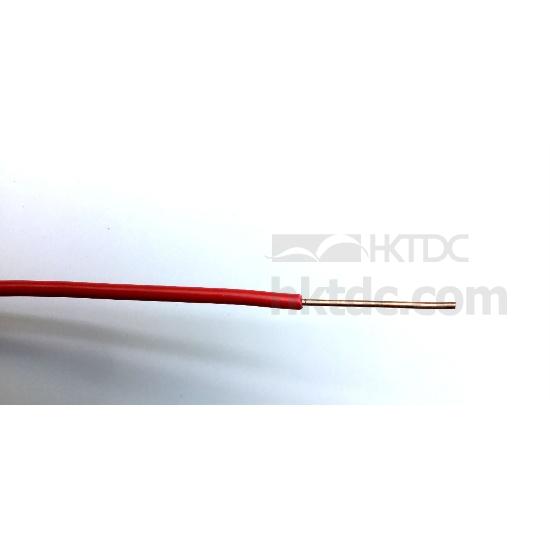Introduction:

When it comes to choosing the right wire insulation for various applications, significant factors need to be considered, such as cost-effectiveness and performance. In this blog post, we will delve into the world of wire insulation, focusing on PVC Insulated Thermocouple and Teflon Insulated Copper Wire. By exploring their features, benefits, and drawbacks, we aim to provide a thorough comparison to help you make an informed decision for your wiring needs.
What is PVC Insulated Thermocouple Wire?
PVC Insulated Thermocouple Wire is widely recognized as one of the most economical jacketed wire insulations available today. Its design incorporates color-coded conductors that are insulated using polyvinyl chloride (PVC). This unique combination ensures effective insulation and protection for a range of applications.
Advantages of PVC Insulated Thermocouple Wire:
1. Cost-effectiveness: PVC insulation offers a budget-friendly solution without compromising reliability. It provides a balance between performance and affordability, making it an attractive choice for many industries.
2. Versatility: Due to its PVC jacket, this wire insulation exhibits excellent resistance to moisture, abrasion, oils, and chemicals. Consequently, it can be utilized in various environments without compromising its performance.
3. Ease of installation: PVC Insulated Thermocouple Wire boasts excellent flexibility, allowing easy routing and installation even in complex setups. Its pliable nature ensures convenience during installation processes, reducing time and effort.
4. Thermal stability: PVC insulation possesses decent resistance to high temperatures, making it suitable for various industrial applications that operate within a particular temperature range.
Disadvantages of PVC Insulated Thermocouple Wire:
1. Limited temperature range: Despite its thermal stability, PVC insulation has certain limits in terms of higher temperatures. It may not be suitable for extreme heat applications where other insulation materials such as Teflon come into play.
2. Lower durability: PVC has a relatively lower resistance to UV radiation, which can lead to its degradation over time when exposed to sunlight. This factor should be considered when selecting this wire insulation in outdoor or exposed applications.
What is Teflon Insulated Copper Wire?
Teflon Insulated Copper Wire is hailed for its exceptional durability and performance. Its composition includes copper conductors insulated using a synthetic material known as polytetrafluoroethylene (PTFE) or Teflon. This insulation provides remarkable properties that make it highly sought after in various industries.
Advantages of Teflon Insulated Copper Wire:
1. High temperature resistance: Teflon insulation possesses outstanding thermal stability, allowing it to withstand extreme temperatures. It can operate effectively in environments with temperatures reaching up to 200°C or higher, a feature not seen in PVC insulation.
2. Superior chemical resistance: Teflon's non-reactive and resistant nature makes it impervious to harmful chemicals, acids, and solvents. This exceptional resistance ensures long-term reliability and suitability for harsh environments such as chemical manufacturing or laboratory applications.
3. Excellent electrical properties: Teflon insulation provides exceptional dielectric strength and maintains consistent electrical performance over time. It ensures minimal signal loss and high insulation resistance, making it essential in sensitive electrical and electronic applications.
Disadvantages of Teflon Insulated Copper Wire:
1. Higher cost: Teflon insulation materials tend to be more expensive compared to PVC. The added benefits and improved performance make it an investment worth considering for specific applications that require its unique properties.
2. Limited flexibility: Teflon insulation is relatively stiffer compared to PVC, which can pose challenges during installation in tight spaces or complex configurations. Careful planning and routing are necessary to accommodate its reduced flexibility.
Conclusion:
In the world of wire insulation, PVC Insulated Thermocouple Wire and Teflon Insulated Copper Wire stand as popular choices with distinct advantages and drawbacks. While PVC insulation offers cost-effectiveness and versatility, Teflon insulation excels in high-temperature applications and chemical resistance. Understanding the specific requirements of your project is crucial in determining which insulation option is most suitable. Whether it's PVC or Teflon, both options provide reliable performance catering to different needs.
